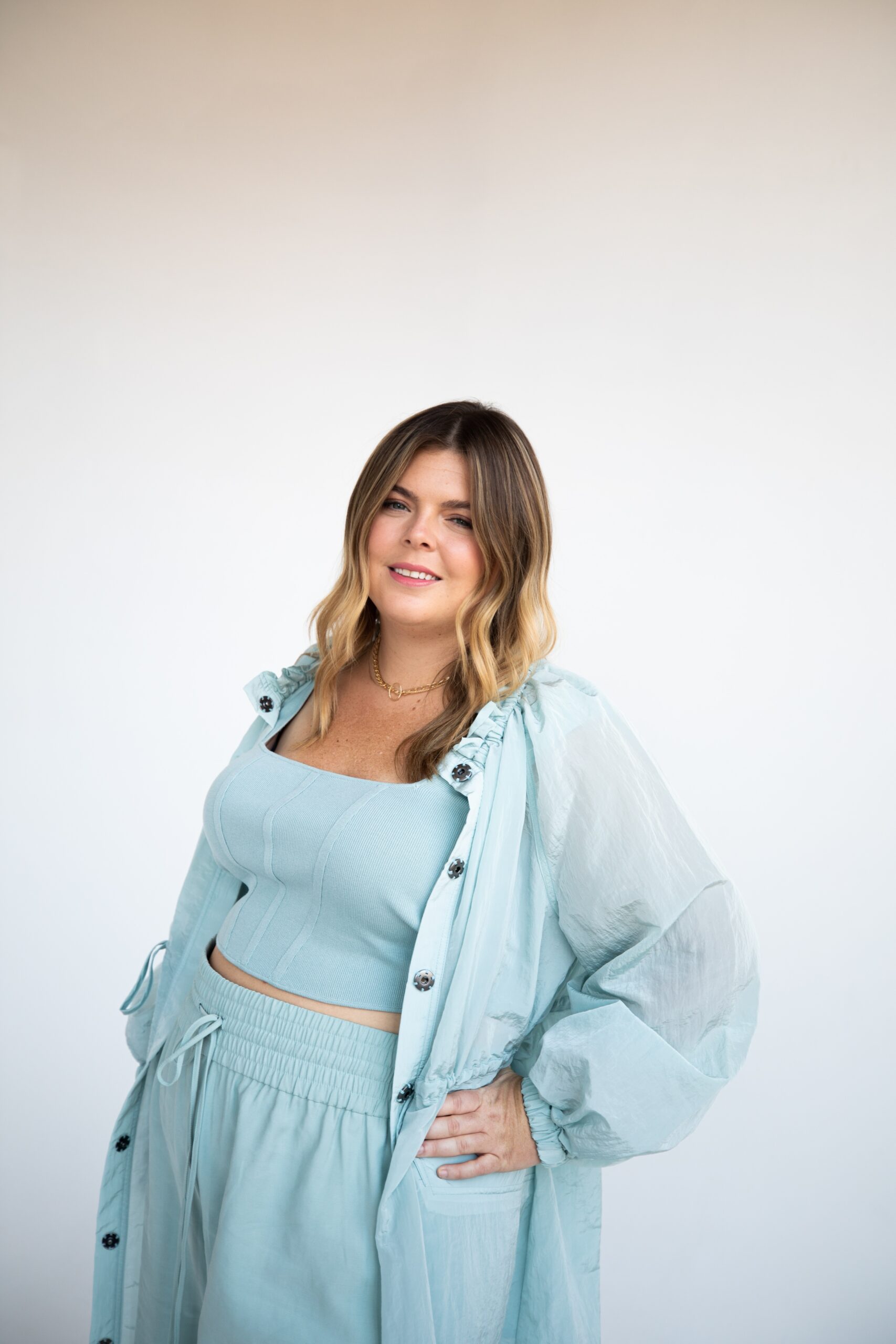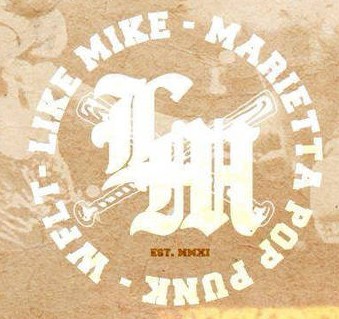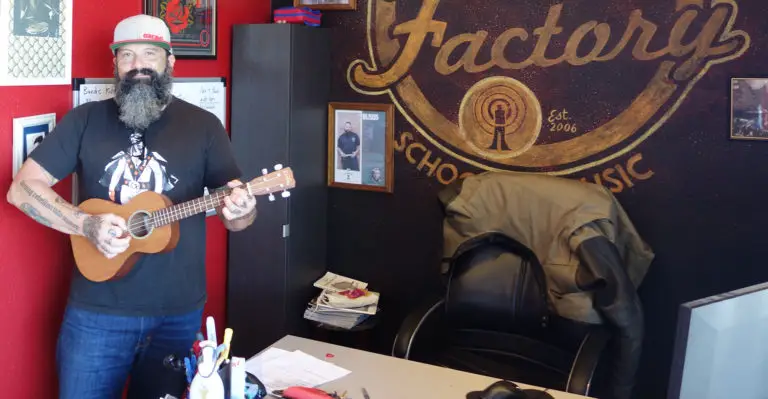Turning Concerts into Careers: Cassie Petrey’s Journey from Fan to Industry Founder
As a fan, breaking into the music industry can be a daunting feat. But in today’s dynamic and rapidly changing landscape, it’s never been easier to network and put yourself out there.
By The Barricade sat down with Cassie Petrey, co-founder of the leading artist management and music marketing firm Crowd Surf to learn more about her recommendations on taking that initial interest in the industry and turning it into a career.
You mentioned your background was from being a music fan initially, what made you want to start working in the music industry, and what first steps did you take in your career to get there?
Cassie: When I was 11 years old, I went to my first concert with my softball team. It was a truly magical experience. There’s nothing like 15,000 people singing a song together. That was the catalyst to my interest in the music industry.
After that, I started frequently going to concerts and becoming a super fan of several different artists.
Around the same time, the internet was entering households for the first time in a way that a mass majority of the general public had access to it.
I combined those things and created an email list for the Backstreet Boys that became really popular in their fan community. This launched my interest in other marketing avenues as well.
When I was 15, I had the realization that there were jobs in the music industry beyond the performer that was on stage. Once I realized that, I’ve never looked back.
I’m from Louisville, Kentucky – which is not exactly a music industry Mecca. However, I did everything I could to start building my resume for my future career.
I found local bands, labels, and even a manager and volunteered to work for them. Locals bands always need help. It was a great way to build my resume.
Throughout your career, did you have any mentors giving you support, and do you have any advice for someone in a similar position today that might be seeking a mentor to break into the industry?
Cassie: I’ve been fortunate to work with a lot of amazing people. I don’t know if I’d call one specific person a mentor though. For whatever reason, I didn’t really seek that specific type of relationship out.
That’s not to say that I don’t seek out advice though, I think I just do it in smaller chunks. When I’m asking for help or gathering insight on a topic, I make my ask very specific.
This takes up less time of the person I’m asking for insight/advice/help from, and I’m more likely to get an answer.
My advice with seeking out a mentorship or guidance is to make it easy for somebody to help you. Ask a specific question to somebody.
Don’t be super broad and vague. You can do the front end work to know exactly how a person can help you, and make it easy for them to help you.
My company Crowd Surf actually has an apprenticeship program and anyone can apply who is an aspiring music professional.
We give our apprentices hands-on, behind-the-scenes experience working on some incredible artist projects. http://www.crowdsurf.net/apprenticeship
Fast forwarding to present, as we look ahead into the new year, we’d love to get your take on the state of the industry. Where do you see things headed in 2024, both macro for the industry, but as well as more micro in terms of what artists can do to get the most out of their social efforts in 2024?
Cassie: I love where social media has taken trends in music this year. Content has really returned to be more focused around music and entertainment, and less about gimmicks and trends.
Where things are going is such a relief. It’s going to make artists feel so much better about what they’re posting on social media.
My advice I have for artists is to take a step back and think about their content in a really simple way.
View social media as a video extension of your art, rather than a beast you are forced to populate. Social media is a tool to get to your goals. It does not need to be the goal.
For 2024, where would you recommend people interested in working in the business side of the industry bring their efforts?
Cassie: If you’re interested in working in the music industry, really think about where you think you can personally contribute to an artist’s career.
There’s a lot of problems to be solved in the music industry right now. Traditional PR is expensive and not really worth the high retainers for a majority of artists.
A&R teams at a lot of labels operate more like business development teams now, and there isn’t as much creative support on making music.
Artists need to create more video content than ever before. There’s a lot of problems that need to be solved. Timing is good for being able to make an impact on the music business.
For new musicians in particular, are there any strategies you’d recommend deploying to try and build out their social media plans for the new year?
Cassie: Figure out what the video extension of your art is, and figure out how to produce that content on an ongoing basis.
Maybe cover videos is a part of that strategy. Maybe it’s acoustic versions of your songs. Maybe it’s playing insane guitar riffs.
Whatever it is, figure out how to add consistent video production into your artist schedule on an ongoing basis. It will be hard to make a dent in social media without a flow of video content.
A lot of bands like to be precious with their image on social, and can be hesitant to get involved. Do you have any advice for bands that are having trouble taking the leap and putting themselves out there?
Cassie: Unfortunately, part of your job as a band now is going to be creating video content to put on social media.
You have to create music for the devices people use to listen to music. That used to be radio. Then television became popular and we had to make music videos.
Now the phone is popular and we have to make our music work for that device.
Hardware trends force music to evolve, and this is where we’re at right now. Whether you like it or not, if you’re a successful artist, you’re going to have to be on social media. If you don’t control it yourself, your fans are going to take the videos themselves and post them and dictate the narrative.
You might as well have some say in it.
As an artist manager, how do you seek out new acts to work with, and what aspects of their careers do you take into consideration?
Cassie: I’ve learned a lot about this over the years.
There are many ways I’ve met clients. One came in because we reached out on TikTok. Others are because somebody asked if I was interested in the meeting.
I personally love working on developing artists that I think could play in arenas one day. There’s a lot of factors that go into being able to get to that point, but I ultimately need to see the vision for that if I want to dive into a project on the management end.
Once bands have started building a fanbase, how would you recommend engaging them, turning fans into superfans, and trying to translate online success into ticket and merch sales?
Cassie: Treat your fans the same way you would treat a good friend. Do random little special things for them. Say hi, just because.
Don’t just ask them for things, but it’s ok to ask them to be there for you when you really need it. They’ll want to be.
Don’t underestimate the power of one on one communication. It’s key in the early stages of fan development.
For those with a limited marketing budget, what are some of the most budget-friendly tools or strategies you’d recommend to artists wanting to get more out of their social media strategy?
Cassie: You don’t need a lot of budget to be successful on social media. You need time and discipline. You need to be able to power through all the posts that do “just okay” until you finally have your first viral moment.
Then you need to stay disciplined and keep posting when the next video doesn’t match the success of the viral one.
It all comes down to being mentally tough and showing up everyday to work to be an artist. Some days will have great moments. Most days won’t. Showing up after the days that were hard are what make an artist.
Crowd Surf is a leading marketing and music management firm working with some of the world’s most recognizable entertainers and brands including Backstreet Boys, Camila Cabello, Paramore, Nickelback, and many more.
Crowd Surf brand clients include tech giants Apple and Google, and labels such as Universal Music Group, Disney Music Group, Sony, Warner, BMG and Hollywood Records.
Crowd Surf’s artist management roster includes rising stars Loren Gray, Max & Harvey, Ugly Boys and more.
To learn more, visit https://crowdsurf.net/apprenticeship/
You can follow Cassie at:
https://www.instagram.com/cassiepetrey/
https://twitter.com/cassiepetrey
https://www.linkedin.com/in/cassiepetrey
Photo Credit: Annie Noelker








